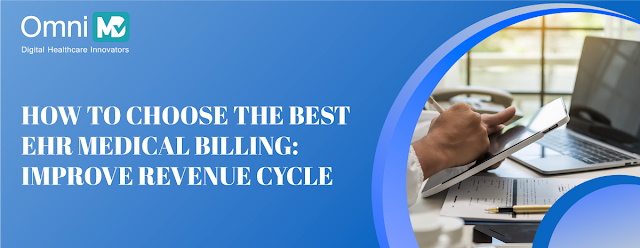The Role of Artificial Intelligence in Automating Medical Billing Processes
These are the days of the digital revolution. The healthcare field, too, isn’t insulated from the developments in the digital world. Medical coding and billing were manual tasks only a few years ago, but automation and artificial intelligence have changed this scenario. Now, Artificial Intelligence (AI) and medical billing are making such tasks more manageable.
The health industry is changing because of automation, and AI is now a game changer for ensuring that healthcare organizations can get paid on time. Automated medical billing software helps providers reduce the number of unpaid claims and speeds up the billing process. The medical billing process has been rapidly transformed because of automation due to the introduction of AI and ML.
How AI Could Automate Medical Billing Processes
Medical billing is a comprehensive part of RCM, and AI is doing its bit to automate the billing function smartly. AI can now find mistakes in submitted claims before processing them so that the payers can fix them. Thus, billing becomes easier, helping doctors and nurses focus on their main job – caring for patients.
These days, it is imperative for organizations to keep up with the latest technological developments. The healthcare industry is very dynamic since regulations are constantly changing. Machine learning and AI are now part of the healthcare industry for good. This will help providers cut unnecessary paperwork and the billing process.
Ways AI Helps Medical Billing Automation
Medical billing that utilizes artificial intelligence has several benefits. There exist several reasons to integrate AI into a healthcare organization. Some of these reasons are as follows:
1. Efficiency and Accuracy: With the help of AI and automation, you can easily cut down on the paperwork and the mistakes that could happen. This makes claims and billing easier.
2. Conservation of Time: The nature of medical billing is very intricate. This involves navigating several aspects, such as the unique payment policies of each payer, due to which errors can accumulate rapidly. With the help of automation, healthcare professionals can get more time to spend directly with patients. This naturally leads to better long-term outcomes.
3. Improved Data Management: AI-based RCM software offers superior patient-billing data management. Individuals can access this centralized system from anywhere in the world. This makes changing billing information and even following up on late payments easy.
The Role of AI in Medical Billing
In healthcare, billing and coding are among the most essential ways AI changes things. Automation, which AI powers, ensures billing tasks are done quickly and accurately. AI can also find and fix billing errors, which could save healthcare institutions lost revenue because of mistakes in billing. In addition, AI’s data analytics skills help healthcare professionals find patterns and trends in corresponding data. You can use this valuable information to improve your treatment and care for your patients.
The Advantages of Integrating AI in Medical Billing
AI-based solutions are being used inevitably in billing and coding. Since automation of the medical billing process is a scalable solution, it reduces the need for medical billers. Also, there is scope for cash-flow improvement as correct and up-to-date patient statements keep the cash flow steady. Overall productivity is boosted as AI technology frees administrative staff to work on more critical tasks. AI medical billing lowers operational costs. At the same time, there are fewer disagreements and fewer questions about patient statements. Finally, real-time auditing helps save time and money by finding mistakes immediately and avoiding expensive fixes later in the billing process.
Challenges Faced by AI in Healthcare
Today, although AI has much potential, it is difficult to incorporate it into medical billing. Let’s discuss some of the challenges that some healthcare organizations face while attempting to implement an AI platform.
At the outset, coding systems have become complex over the years. For example, ICD-10 and CPT are two examples of coding systems that are incredibly complex. These coding systems make automation challenging, making it difficult to ensure accurate coding. Further, medical billing data needing more consistency or correctness can make it tougher to make accurate AI models, necessitating specialized medical billing software systems.
It also must be noted that several healthcare facilities still use legacy systems that must be updated to work with the latest AI solutions. Also, people often resist change, as many healthcare professionals are not quite open to adopting new technologies and newer ways of doing things. Currently, the cost of implementing AI is high and may need more considerable investments in hardware and skills.
Conclusion
Despite the various challenges, it is possible to harness AI for enhanced patient experiences. Patients can indeed benefit from artificial intelligence and machine learning. Thus, AI can bring a proactive approach to automation in medical billing processes. OmniMD helps you reinvent the medical billing software system (RCM Software). You benefit from coding managed, claims scrubbed, co-pays collected, and communication optimized. Contact us to know more!




Comments
Post a Comment